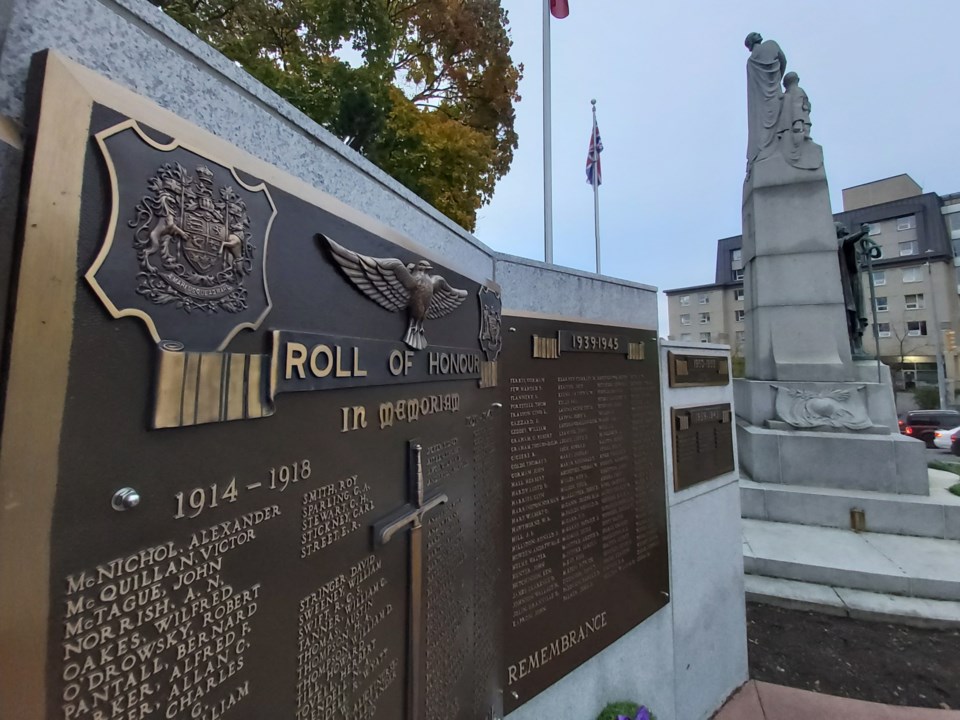They’re more than names on a cenotaph, they’re a symbol of remembrance for 28 Guelph soldiers who died during liberation of the Dutch from Nazi control 75 years ago. Now a new initiative aims to put more than just faces to those names.
Photos of each soldier, whose bodies are buried in The Netherlands, will be on display at the cenotaph (corner of Woolwich Street and Eramosa Road) beginning Nov. 1 through the Faces to Names campaign from In Our Father's Footsteps (IOFF). Alongside the photos will be a QR code which, when scanned with a smartphone, will provide a brief biography of the soldier and a short video clip.
“Faces to Names honours those who contributed to the peace and freedom that we, as Canadians, enjoy today. It also creates a better understanding of the impact of war,” said Guelph resident Karen Hunter, organizer and event coordinator for IOFF, in a news release, “so the cenotaph can be a window to our past, a connection to our present, and a path to our future.”
The research process, spearheaded by students, sheds new light on the community’s history and is designed to create a better understanding of the impact of war.
When IOFF’s Dutch liberation pilgrimage was cancelled in May due to the pandemic, Hunter created The Canadian Remembrance Torch to honour our veterans’ legacy of peace, freedom and friendship. Faces to Names is one of its first initiatives, inspired by Dutch foundation Faces to Graves.
Faces to Names will be at the cenotaph until Nov. 11, then in various locations around Guelph until Nov. 30.
Soldier biographies and other details can be accessed at canadianremembrancetorch.ca/faces-to-names.
